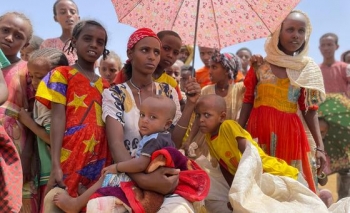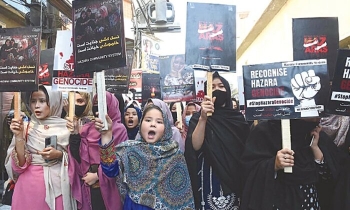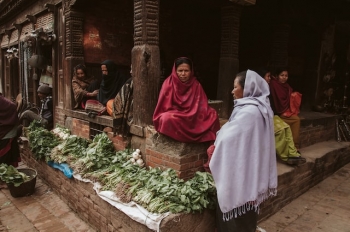L’Osservatorio monitors the web and other information sources daily to provide in-depth news on the impact of contemporary armed conflicts on civilians.
24 October 2022
A report from Human Rights Watch sheds light on Turkey’s contravention of the non refoulement principle
Hundreds of Syrian refugees have been arrested, detained, and forced back to Syria by Turkish authorities between February and July 2022, Human Rights Watch reports. The group, interviewing dozens of Syrian refugees, revealed how they were forced to sign “voluntary” return forms that they were not even allowed to read. Those who initially refused to sign, they recall, were systematically beaten by Turkish officials.
The interviewed refugees have declared they were forced to cross borders at either Öncüpınar/Bab al-Salam or Cilvegözü/Bab al-Hawa, both leading to Syrian regions that currently fall outside of the government control, and that they were threatened to be shot should they try and cross back.
Turkey, hosting approximately 3,7 million Syrian refugees, has witnessed a worrying increase in racist and xenophobic attacks against Syrians, as the population has been increasingly opposing the refugees’ permanence in the country. The question of repatriation is hence first of all a political issue, of which refugees are paying the price: in the lead-up to the forthcoming elections, opposition parties and President Erdogan’s coalition government have been releasing speeches that contributed to fuel an already widespread anti-refugee sentiment.
Nadia Hardman, researcher at Human Rights Watch, underlined how the European Union (EU) “should acknowledge that Turkey does not meet its criteria for a safe third country and suspend its funding of migration detention and border controls until forced deportations cease.” As a matter of fact, since the implementation of the 2016 EU-Turkey deal, the EU has been providing billions of Euros to Turkey for migration management, regardless of its substantial failure to meet the safe third country criteria as defined by the EU law itself.
To read more, please visit:
- https://www.hrw.org/news/2022/10/24/turkey-hundreds-refugees-deported-syria
- https://www.washingtonpost.com/world/2022/10/24/syria-turkey-refugees-deportation/
- https://www.iai.it/en/pubblicazioni/will-turkey-and-syria-reconcile
- https://www.meltingpot.org/2022/11/turchia-centinaia-di-rifugiati-deportati-in-siria/
by Laura Maschio
29 October 2022
Women are gaining an increasingly important role in mediation and negotiation processes.
In Syria, the long fighting of the civil war has worsened the political, economic and social state of the country to the point of prompting countless citizens to leave their homes and/or country. So far, the efforts of collaboration and mediation by the international community have been in vain due to misunderstandings and hostility between formal mediators in local communities. However, the role of women – in this case of Syrian women – has reached a level of remarkable importance.
Syrian women are often involved as “internal mediators” within a controversy as they are trusted and credible on both sides. They are also credited with the ability to both build and exploit relationships, and the possession of accurate and detailed information about the parties of the dispute.
At the beginning of the war, for instance, the district of Zabadani (northwest of Damascus) had become the centre of clashes between the government and the opposition forces. Because of the restrictions on freedom of movement faced by men, the involvement of women in negotiations for a ceasefire with government authorities became not only acceptable, but necessary. Referring to this fact, peace-building expert Sameh Awad explains that women in Zabadani had intervened to protect their husbands from government research operations.
A similar case is that of the north-western city of Idlib where the mediation skills of a group of women allowed the release of prisoners sentenced to death. In Damascus, the exponential growth of violence against internally displaced persons (IDP) has led Mobaderoon, an organization composed of women, to take a crucial role in the process of restoring stability, security and social cohesion. Their commitment to the formation of local committees and the creation of neutral spaces has facilitated the acceptance of displaced persons and, subsequently, the increase of economic opportunities.
To read more, please visit:
- https://news.un.org/en/story/2022/10/1129972
- https://www.unwomen.org/en/news-stories/feature-story/2022/10/how-syrian-women-navigate-security-risks-to-mediate-local-conflicts
- https://iraq.un.org/en/188075-womens-participation-local-mediation-lessons-iraq-libya-syria-and-yemen
- https://www.wilpf.org/ways-syrian-women-must-be-included-in-the-upcoming-peace-talks/
- https://icanpeacework.org/2019/01/syrian-women-peace-process-argument-inclusion/
- https://icanpeacework.org/2020/11/innovative-peace-story-syrias-mobaderoon/
by Alessia Bertola














